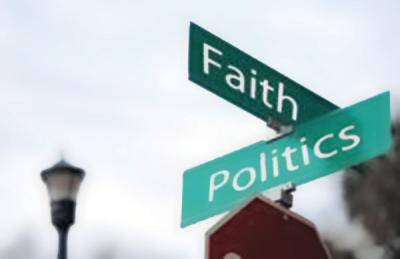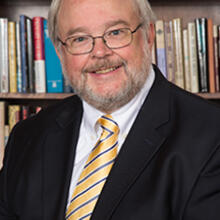In Washington, conventional wisdom is widely shared and often wrong. After the 2012 elections, the consensus was that immigration reform was one priority which could be accomplished on a bipartisan basis. In early June, the consensus is that this is almost impossible because of opposition in the Republican House. Let’s hope the conventional wisdom is wrong again.
The U.S. Catholic Bishops’ Conference is taking extraordinary steps to prove that wisdom wrong. The bishops are following the powerful example of Pope Francis, who traveled to Lampedusa, the Isle of Tears, to defend the lives and dignity of immigrants. In April, Cardinal O’Malley and other bishops made a pilgrimage to the U.S.- Mexico border, where they shared in the Eucharist through the fence and prayed for those who died trying to cross over. In May, bishops came to Capitol Hill for a Mass for immigrants and to carry their message to House leaders. Archbishop Thomas G. Wenski said this broken system was “a stain on the soul of our nation.” He called current immigration policies “cynical,” because we rely on undocumented workers to pick our food, bus our dishes, clean our offices and care for our children but do not protect their dignity and rights as children of God.
There is also cynicism in the politics of immigration, in the gap between what leaders say and how they act.
National Republicans looking to the 2016 elections are convinced they cannot win the White House by opposing immigration reform. Apparently, the message “We wish you and your relatives weren’t here, but since some of you are citizens, please vote for us” is not a winner among Hispanics. But these leaders are doing little to overcome their members’ opposition.
House Republican leaders alternate between calling immigration reform a priority and blaming the president for not moving forward. The problem is not the White House, but the House of Representatives. Some Republicans, focused on the 2014 elections and possible primary challenges from their right, insist the Congress should not anger the party’s conservative base, give Obama a victory or permit immigrants to become citizens because of fears they are likely to vote for Democrats. Speaker Boehner has so far refused to let the House consider the Senate’s comprehensive legislation because it would probably pass, but without support from a majority of Republicans.
President Obama has acted to protect “dreamers,” young immigrants already in U.S. schools and communities, from being deported. But he has yet to limit other deportations, now at record levels, in order to appear strong on border security. He postponed a review of deportation policy to maintain leverage and to avoid antagonizing Republicans.
The broad coalition for reform—Catholics and evangelicals, business and labor, law enforcement and agriculture—needs to persuade undecided lawmakers and overcome resistance without demonizing opponents or ignoring legitimate concerns about respect for law, impact on U.S. workers and national identity. It is essential that Catholic conservatives and Republicans make the case for constructive action in public statements and private advocacy, as Jeb Bush and Paul Ryan have done. The specifics of reform require “prudential judgment,” but doing nothing or just erecting longer and higher fences are neither prudent nor consistent with Catholic principles or American values. Will Republicans pay a price with their Catholic allies for failure to act?
The fate of immigration reform probably comes down to the mind and heart of Speaker Boehner. In private he supports reform and ridicules fear in his own caucus. It is quite possible that Boehner will not be speaker three years from now. He may choose more time with his grandchildren and golf over trying to lead a dysfunctional House. He may be voted out because he is not conservative enough or confrontational enough. What will be his legacy? Will he be paralyzed by divisions in his caucus, or will he have the courage to let the House vote on immigration reform that advances the common good and protects the “least among us?”
Conventional wisdom says he won’t choose his heart over his head, that Speaker Boehner will yield to internal political pressures and not respond to the call of his conscience. I hope conventional wisdom is wrong once again.








